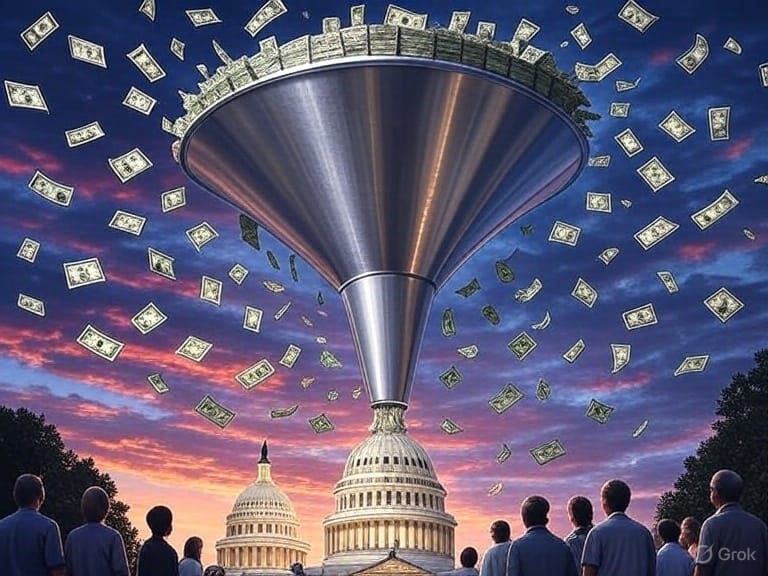- Shortlysts
- Posts
- The Supreme Court’s Next Big Case Could Quietly Rewrite How Elections Are Bought and Paid For
The Supreme Court’s Next Big Case Could Quietly Rewrite How Elections Are Bought and Paid For
The Supreme Court is set to hear a major case that could unleash party spending and reshape how elections are funded.

What Happened
The U.S. Supreme Court has agreed to hear a case that could fundamentally change how money flows through American politics. The case, National Republican Senatorial Committee v. Federal Election Commission, challenges long-standing limits on how much political parties can spend in direct coordination with candidates.
These limits have been in place for decades to restrict how directly political parties can channel big donor money into individual campaigns.
At the center of the case are Republican groups like the NRSC and NRCC, along with figures like Vice President J.D. Vance and former Congressman Steve Chabot. They argue that coordinated spending caps violate the First Amendment by restricting free political speech.
Their legal team points to more recent Supreme Court decisions like Citizens United and McCutcheon, which chipped away at campaign finance limits. They say those rulings open the door to removing coordination limits altogether.
The Court is expected to hear arguments in October, with a ruling likely in 2026 — just ahead of the critical midterm elections.
Why It Matters
Should the Court side with the Republican challengers, the impact on American elections would be colossal. Right now, political parties are limited in how much money they can coordinate with candidates’ campaigns.
Without those limits, parties could flood key races with cash, essentially bypassing restrictions on direct contributions to candidates. Wealthy donors, corporations, and special interests could pour money into party committees, knowing the funds will reach the candidates they support.
Some critics believe this would supercharge the influence of big money in politics. Grassroots candidates, especially those without strong party backing, would struggle to compete.
Meanwhile, political parties would consolidate power as financial gatekeepers, deciding which candidates receive resources and which are left behind.
However, supporters of the challenge argue that the limits are outdated and unnecessary. They say recent court rulings have expanded political spending rights, and the restrictions no longer make sense. They claim lifting the restrictions would strengthen parties and give voters more clarity on where candidates stand.
But make no mistake regarding the implications of this case, as it could very well quietly rewrite the rules of political influence in the U.S. It would tilt the playing field even further toward those with deep pockets.
How It Affects You
Striking down coordinated spending limits would very likely make elections even more expensive. They’d also be even more dominated by wealthy donors and party insiders. Ordinary voters and grassroots campaigns risk being drowned out by a tidal wave of party-funded ads, mailers, and messaging.
It also raises questions about who candidates will ultimately answer to. If their campaigns are powered by massive party spending funded by special interests, they may feel more accountable to big donors than to their constituents.
Regardless of your political leanings, the outcome of this case will influence how competitive elections are, how accessible they are for newcomers, and how much sway regular voters have compared to major donors.